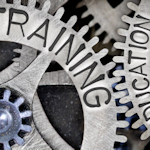
Early Life Skills and Human Capital Development Mini Conference
Following the successful series of mini-conferences, the Faculty of Economics and Cambridge INET held the mini-conference "Early Life Skills and Human Capital Development" on 12 May 2021. On this occasion, the conference brought together Petra Todd (University of Pennsylvania), Flavio Cunha (Rice University), and Pengpeng Xiao (Duke University), as speakers, and a long list of participants.
This mini-conference tackles different mechanisms at how the child's early life skills are developed. Petra Todd kicked off the conference by presenting a dynamic model of student enrollment, school choice, academic achievement, and grade progression to evaluate the impacts of Mexico's conditional cash transfer program. Then, Flavio Cunha took the lead by building a model for nutritional choices and health with reference-dependent preferences; he used the model to decompose the impact of the protein intervention on height into price and reference-point effects. Last but not least, Pengpeng Xiao closed the conference by discussing how welfare policies affect the intergenerational transmission of human capital through education, marriage choices, and parental investments in children.
The skill development in the early years of life is crucial in influencing a range of health and social outcomes across the life course. The mechanisms analyzed in the conference have shed light on how to make an effective investment to help children reaching their full potential.
Organised by: Prof. Eric French and Dr. Weilong Zhang
Venue: Online event (zoom)
Event Date: Wednesday 12th May 2021
Time: 02:00pm - 05:50pm
Speakers:
Petra Todd (University of Pennsylvania)
Flavio Cunha (Rice University)
Pengpeng Xiao (Duke University)
See programme for full details
Tags:
